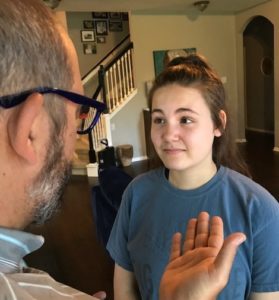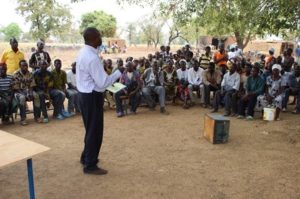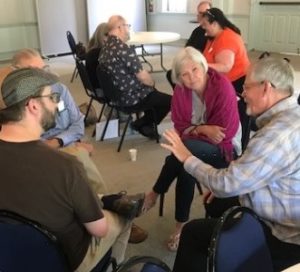
Houston, TX (ANS) – When you hear news reports, or when someone tells you something, how do you know if it’s true or not? How much confidence can you have in the source of information you receive every day? These are pretty important questions, and in some cases, could be a matter of life and death.
Several years ago I spent a good amount of time in Washington D.C. I frequently participated in various conferences, conventions and events. Sometimes they were covered by major news media sources. On occasions I would see the evening news reports of those events. Seeing the news coverage was often very different than the actual event that I had attended and observed first hand. In fact, from the news coverage, one would hardly recognize many of them as the same events.
The Need for Reliable Sources and Spiritual Discernment
Everyone is subject to being mislead or deceived in some way. Sadly, we are living in a time when the majority of the people of the world are being deceived or mislead, especially in the spiritual realm. Prophets of old warned of a time when there would be great deception and darkness, where good would be called evil, and evil good.
As followers of Jesus and as ambassadors (representatives) of the Lord, it’s important that we have a safeguard against being deceived or mislead ourselves. Otherwise, we could be subject to misleading others. For those of us who have access to the Word of God in written form, in a language we can understand and the ability to read it with comprehension, it is a great blessing and privilege indeed. However, a large percentage of the world’s population, even today, do not have access to the Scriptures. Many who have access to Scripture do not read or know it.

Hearing Dominant Cultures
Interestingly, in ancient times, in hearing dominant cultures, people had more confidence in a face-to-face spoken communication than a written document. In modern, Western cultures written documents are perceived to be more credible and authentic than spoken or other means of communication. Actually, just because something shows up in print (text-books, newspapers, magazines, etc.) it doesn’t mean it is true or reliable.
Universal and Reproducible Methods and Strategies
There seems to be a growing recognition among church leaders, missionaries as well as ordinary followers of Jesus, that it will take all means available to share the Gospel with everyone and make disciples of all people groups. Lessons we are learning from the more relational, communal, Oral Cultures (primarily in the Global South) are actually very transferable to the West and the Global North. Their methods of communication and instruction are more universal and reproducible than our modern Western text-based methods. Although we should use all ways and means available.
Communicating Truth, By All Means
Many of the more text and technology dependent societies today have lost many important ways of communicating, learning, remembering and building relationships. For example, simply making eye contact and having personal face-to-face conversations are not as common today as in past times. Having community gatherings and group discussions are vital activities we could improve on.

An Important Discovery
A pastor in an African country where Living Water International has conducted extensive Orality Training made an important discovery. After modifying his preaching methods to a more oral learner friendly style, he observed a big difference in the way people responded. Most of the people in that region do not have Bibles or other written materials. So, for his preparation, he began reading, studying, reflecting on and internalizing a passage of Scripture. Then in his delivery, he could make eye contact, ask questions (use dialogical overtones) and engage the congregation in the message. We might call that Scripture engagement for oral learners and communicators. The participatory aspects make a huge difference, not only in oral cultures, but also in the Western and North American context.

The Value of Sincerity and Authenticity
When we consider personally communicating the gospel and making disciples, sharing the Word of God from our hearts and personal experiences is more powerful than just a transfer of information. It builds trust and confidence when we have a genuine experiential message to communicate. People can just sense the difference in the sincerity and authenticity of our lives raland our words. We can have confidence as well that the Holy Spirit will be baring witness to our words, as we share His Word.
When we are sharing the Good News of Jesus, a critical factor is trusting God for the results, trusting and believing that the Holy Spirit will touch hearts and change lives. Scripture speaks of our being able ministers of the New Covenant. Of course, it’s the indwelling Christ and the work of the Spirit that enables us to be fruitful for His Kingdom purposes.
For more information on Orality resources, training opportunities, and other events, visit – www.orality.net or www.water.cc/orality.






